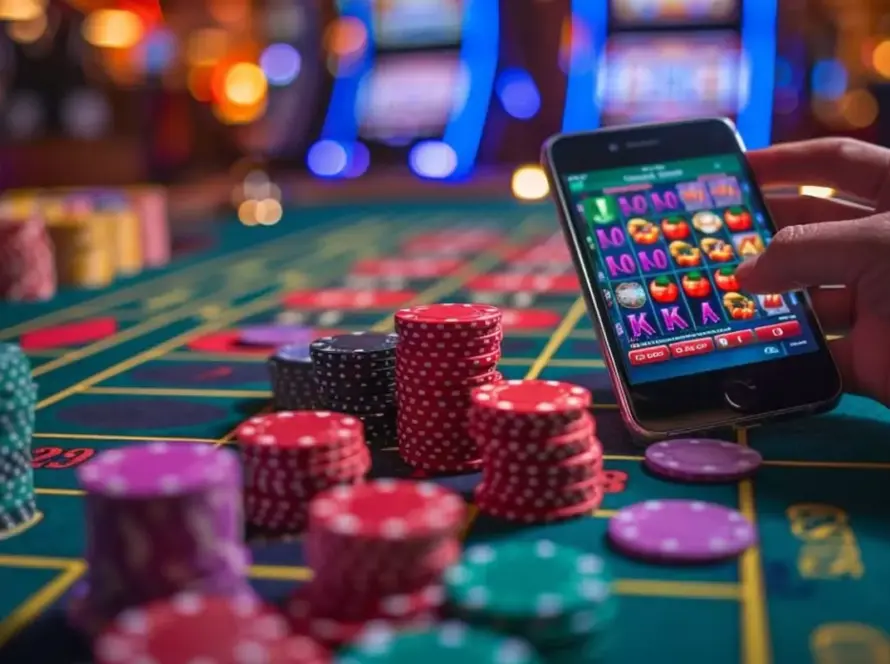Introduction
Have you ever wondered why it’s so hard to stop playing at a casino? It’s not just luck or excitement — it’s psychology. Modern casino games are masterfully engineered using psychological principles to keep players engaged, spending, and returning. In this article, we explore the science behind casino game design and how it taps into the human mind.
1. Operant Conditioning: The Reward System
Casino games are built on B.F. Skinner’s theory of operant conditioning, where behaviors are reinforced by rewards. Slot machines, for example, use variable-ratio reinforcement, meaning players get rewarded at random intervals. This unpredictability keeps players engaged longer than predictable reward systems because they always believe the next spin could be the jackpot.
Key Psychological Trigger:
- Intermittent Rewards: Players are more likely to continue playing when rewards are unpredictable but frequent enough to keep hope alive.
2. The Illusion of Control
Many casino games — such as poker, blackjack, and even slot games with “nudge” or “hold” features — give players a false sense of control. This illusion tricks players into thinking their skill or decisions influence outcomes, increasing engagement and confidence.
How It Works:
- Allowing players to press a “Stop” button on slots.
- Offering choices that don’t actually affect the outcome.
3. Sensory Design: Sounds, Colors, and Lights
Every sound and visual element in a casino is meticulously designed. Slot machines use:
- Bright flashing lights to draw attention.
- Upbeat sounds for wins — even small ones — to trick players into thinking they’re winning more often.
- Warm colors like reds and golds to stimulate excitement and urgency.
Psychological Impact:
These stimuli activate the dopamine system, the same brain region involved in pleasure and addiction.
4. Near Misses and False Wins
A “near miss” (e.g., two jackpot symbols and a third just above the line) is more likely to drive continued play than a total loss. Players interpret these as “almost wins,” which stimulate the brain in a similar way to actual wins.
Real-World Effect:
Studies show that near misses increase the likelihood of continued play — a trick heavily used in slot game design.
5. Time Distortion and Environment
Casinos are designed without clocks or windows, disorienting players and removing cues about how long they’ve been playing. The goal is to keep people immersed and unaware of how much time has passed.
Complemented By:
- Free drinks and luxury surroundings to reduce discomfort and promote extended play.
6. Gamification and Progression Systems
Some modern slot machines and online casinos use levels, achievements, and badges, similar to mobile games. This adds a layer of gamification, which encourages goal-setting and persistence.
Example:
- A slot game may unlock a bonus round or a new theme after a certain number of spins, giving players a reason to keep playing.
7. Social Proof and FOMO
Seeing other players win (real or simulated) can trigger social proof, making you believe you’re missing out. Online casinos often show a feed of recent winners to increase the Fear of Missing Out (FOMO).thegamblingworld.com
8. Loss Aversion and the Sunk Cost Fallacy
Players often keep gambling to “win back” money they’ve lost, falling into the sunk cost fallacy. Losses hurt more than wins feel good — a principle known as loss aversion — and casinos exploit this bias heavily.1bitplay.co

Conclusion
Casino games are not just games of chance — they’re expertly crafted psychological experiences designed to maximize playtime and revenue. Understanding the psychology behind casino game design is crucial for recognizing manipulation and making informed decisions when gambling.
🎯 Key Takeaway:
Next time you’re in a casino or playing an online slot, remember: it’s not just luck at play — it’s behavioral science designed to keep you hooked.1BitPlay.io
Conclusion
Casino games are not just games of chance — they’re expertly crafted psychological experiences designed to maximize playtime and revenue. Understanding the psychology behind casino game design is crucial for recognizing manipulation and making informed decisions when gambling.
🎯 Key Takeaway:
Next time you’re in a casino or playing an online slot, remember: it’s not just luck at play — it’s behavioral
Some modern slot machines and online casinos use levels, achievements, and badges, similar to mobile games. This adds a layer of gamification, which encourages goal-setting and persistence.
Example:
- A slot game may unlock a bonus round or a new theme after a certain number of spins, giving players a reason to keep playing.


